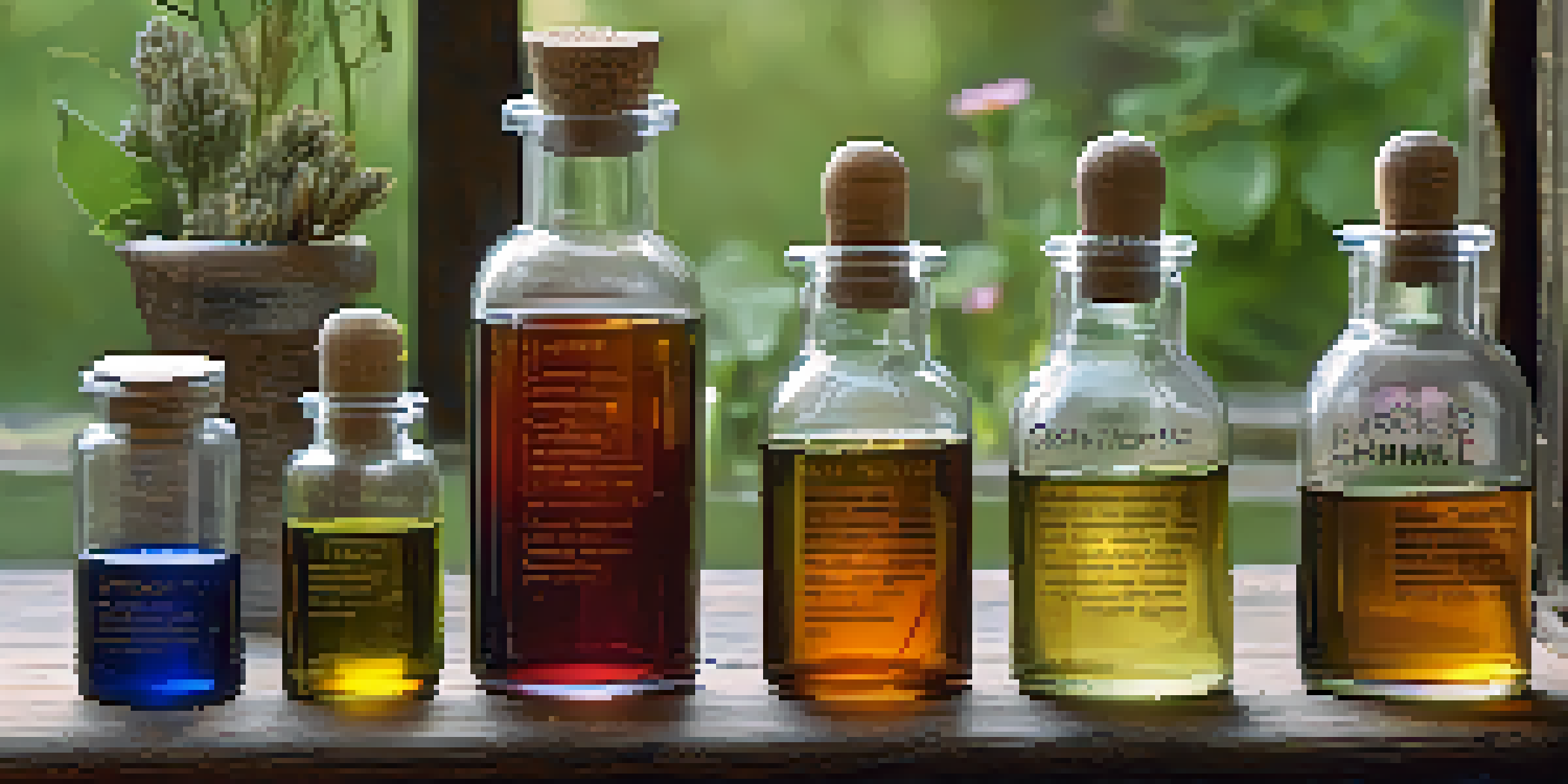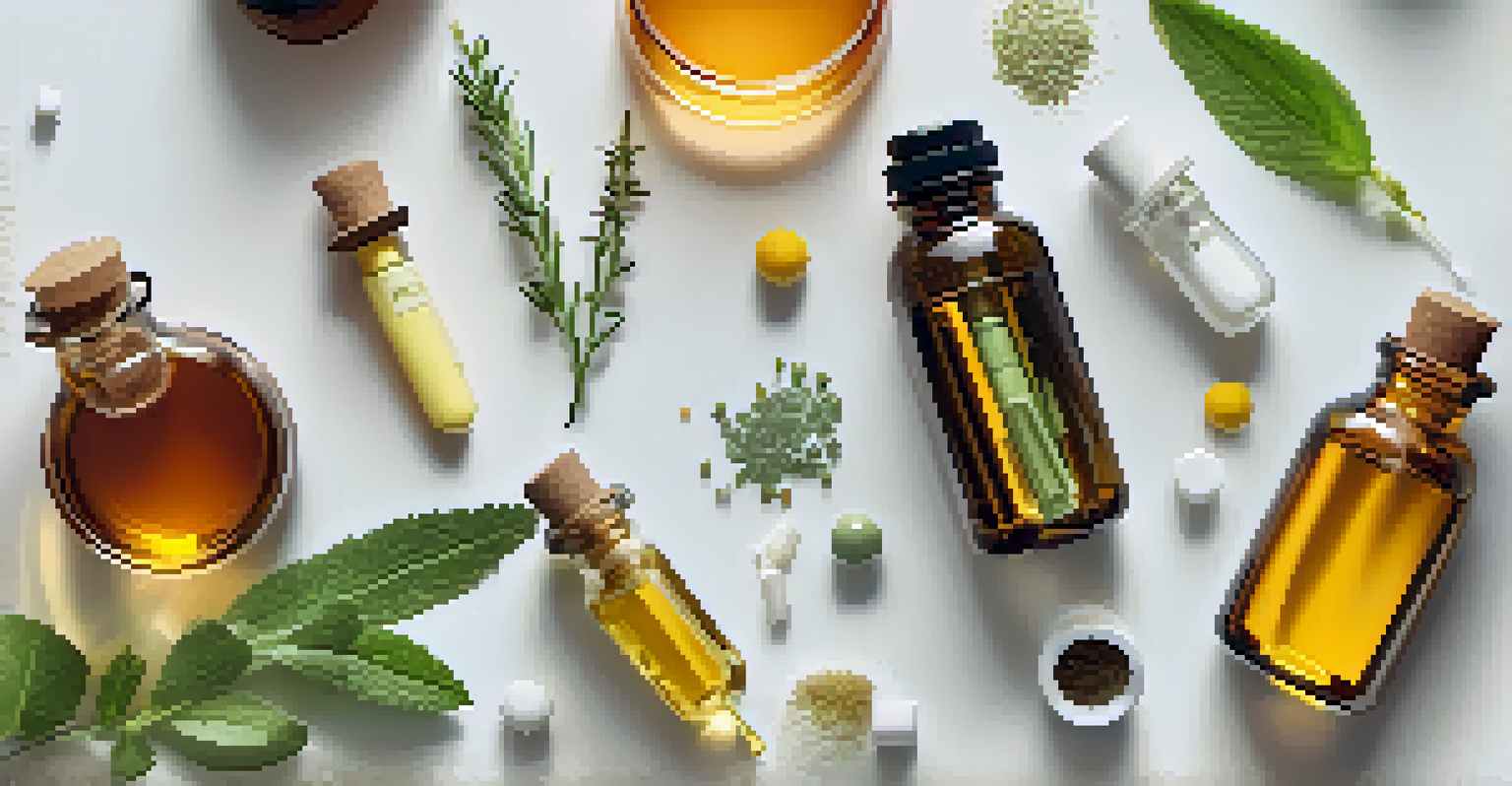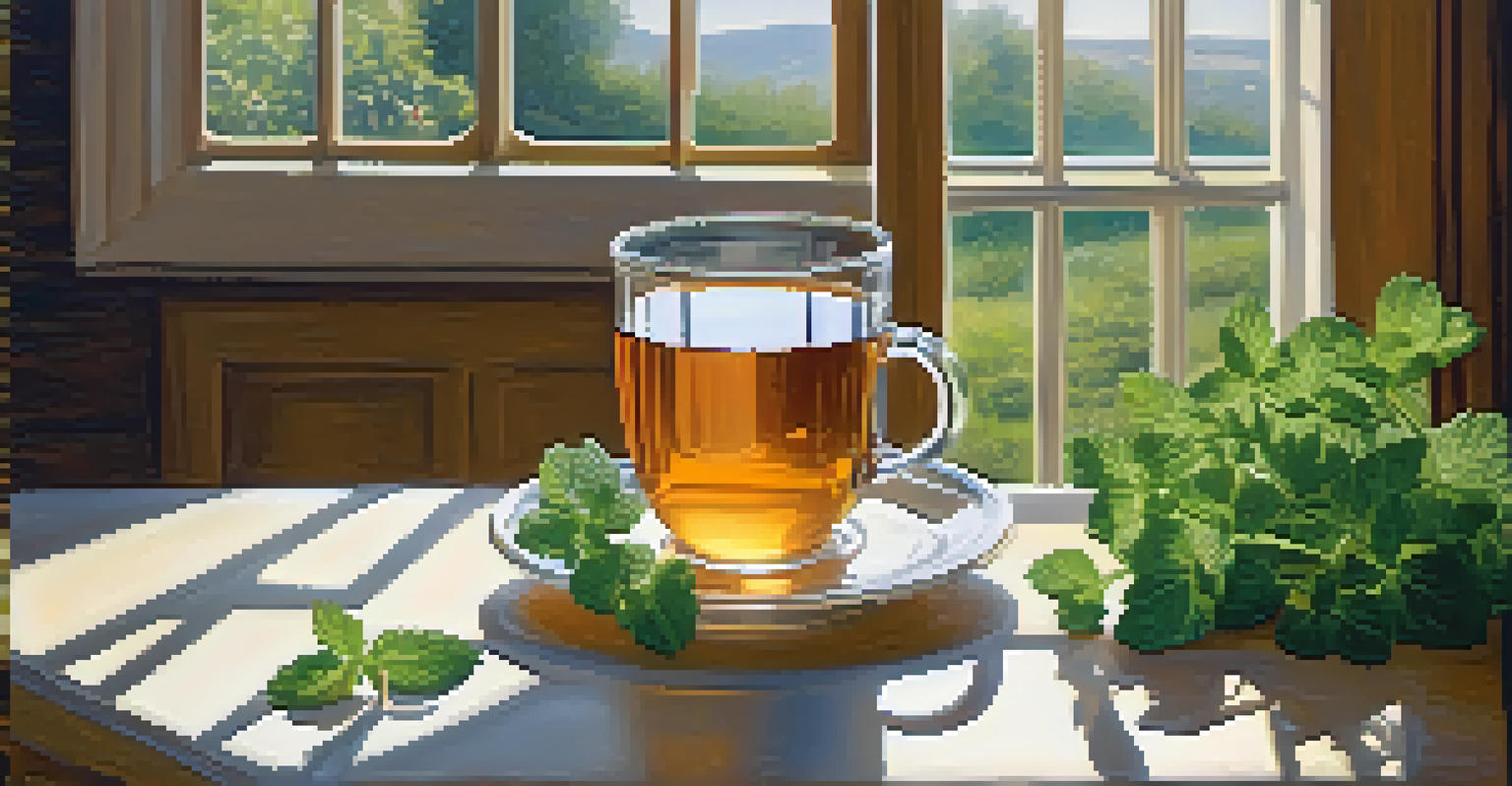Understanding Herbal Formulations: Tinctures and Extracts

What Are Herbal Formulations? An Introduction
Herbal formulations are concoctions made from plant materials, designed for therapeutic purposes. They harness the natural properties of herbs to promote health and well-being. These formulations can come in various forms, with tinctures and extracts being among the most popular.
Herbs are the most potent and effective way to heal the body, mind, and spirit.
Understanding herbal formulations starts with recognizing the diverse methods used to prepare them. While some people might think of herbal tea when they hear 'herbal,' the world of herbal remedies is much broader. Tinctures and extracts, for instance, are concentrated forms that deliver the benefits of herbs in powerful doses.
The use of herbal formulations dates back thousands of years, with many cultures relying on them for medicinal purposes. Today, they continue to be a vital part of holistic health practices, offering an alternative or complement to conventional medicine.
Defining Tinctures: A Closer Look
Tinctures are liquid herbal preparations made by soaking plant materials in alcohol or vinegar. This process extracts the beneficial compounds of the herb, resulting in a potent and concentrated solution. The alcohol acts as a solvent, pulling out the active ingredients while preserving them for longer storage.

One of the key advantages of tinctures is their ease of use. They can be taken directly, added to water, or mixed into other beverages. The versatility of tinctures makes them popular among herbal enthusiasts who appreciate their convenience and effectiveness.
Herbal Formulations Explained
Herbal formulations, including tinctures and extracts, utilize the natural properties of plants for therapeutic purposes.
Moreover, tinctures can have a longer shelf life compared to dried herbs or teas. When stored properly, they can maintain their potency for years, making them a reliable option for anyone looking to incorporate herbal remedies into their daily routine.
Understanding Extracts: What Sets Them Apart?
Extracts are similar to tinctures but can use various solvents, including glycerin or water, to draw out the plant's active components. This means extracts can be alcohol-free, making them suitable for individuals who avoid alcohol for personal or health reasons. The choice of solvent can affect the flavor and potency of the final product.
Let food be thy medicine, and medicine be thy food.
In contrast to tinctures, which are often more concentrated, extracts may offer a different balance of the herb's properties. This can be an important distinction for those seeking specific health benefits or flavors. For example, a glycerin extract might be sweeter and more palatable for children.
Extracts can also come in various forms, such as powders or capsules, allowing for even more flexibility in how they're consumed. This variety enables users to tailor their herbal experience to their preferences and needs, enhancing the overall enjoyment and effectiveness of herbal remedies.
How to Choose Between Tinctures and Extracts
Choosing between tinctures and extracts often depends on personal preferences and specific health goals. Tinctures may be favored for their potency and quick effects, while extracts could be preferred for their versatility and mildness. It's essential to consider the intended use and desired result when making this decision.
For instance, if you're looking for a quick boost in energy or mood, a tincture might be the way to go. On the other hand, if you're preparing a remedy for a child or someone sensitive to strong flavors, an extract could provide a gentler option. Understanding these nuances can help you make an informed choice.
Tinctures vs. Extracts
While both are concentrated herbal preparations, tinctures use alcohol or vinegar, whereas extracts can use various solvents, offering different benefits.
Additionally, the quality of the product matters greatly. Always look for reputable brands that provide information about their sourcing and extraction methods. A high-quality tincture or extract will ensure you receive the full benefits of the herbs.
Dosage: Finding the Right Amount for You
Determining the appropriate dosage for tinctures and extracts can be a bit tricky, as it varies depending on the herb and individual needs. Generally, tinctures are taken in smaller amounts, often ranging from 1 to 30 drops, while extracts may require a different measurement, such as 1 to 2 teaspoons. It's crucial to follow the guidelines provided by the manufacturer or consult a healthcare professional.
Factors such as age, weight, and overall health can influence how your body responds to herbal formulations. Therefore, starting with a lower dose and gradually increasing it while monitoring your body's reaction is advisable. This approach helps ensure safety and efficacy.
Keep in mind that herbal remedies can interact with medications, so it's always wise to discuss your plans with a healthcare provider. They'll guide you to find the right dosage while ensuring it aligns with any existing treatments.
Safety Considerations When Using Herbal Remedies
While herbal formulations like tinctures and extracts can offer numerous health benefits, safety should always be a priority. It’s essential to research the specific herbs you're using, as some can cause adverse effects or interact negatively with other medications. Knowing your herbs can empower you to make safe choices.
Additionally, ensure you’re sourcing products from reputable companies. Quality matters when it comes to herbal preparations, as poor-quality extracts or tinctures may contain contaminants or have reduced potency. Look for brands that provide third-party testing or certifications.
Safety in Herbal Usage
Prioritizing safety is crucial when using herbal remedies, including researching herbs and sourcing from reputable brands to avoid adverse effects.
Finally, pay attention to any changes in your body after starting a new herbal remedy. If you experience any unusual symptoms, it’s best to discontinue use and consult with a healthcare professional. Staying informed and cautious will help you enjoy the benefits of herbal formulations safely.
The Future of Herbal Formulations in Wellness
As the wellness industry continues to evolve, herbal formulations like tinctures and extracts are gaining renewed interest. Many individuals are turning to these natural remedies as alternatives to pharmaceutical options. This shift reflects a growing awareness of the importance of holistic health and the desire for more natural solutions.
The future looks bright for herbal formulations, with ongoing research exploring their benefits and applications. As science and traditional knowledge merge, we may see more innovative products and formulations that cater to modern health needs. This intersection of tradition and innovation is exciting for anyone interested in natural remedies.

Moreover, as consumers become more educated about herbal medicine, the demand for high-quality, ethically sourced products will likely increase. This trend encourages companies to prioritize transparency and sustainability, ultimately benefiting both consumers and the environment.